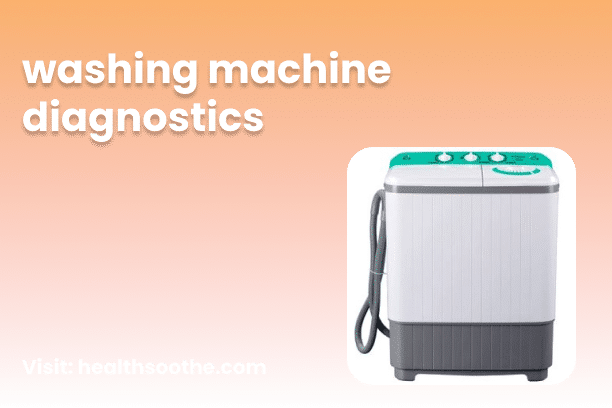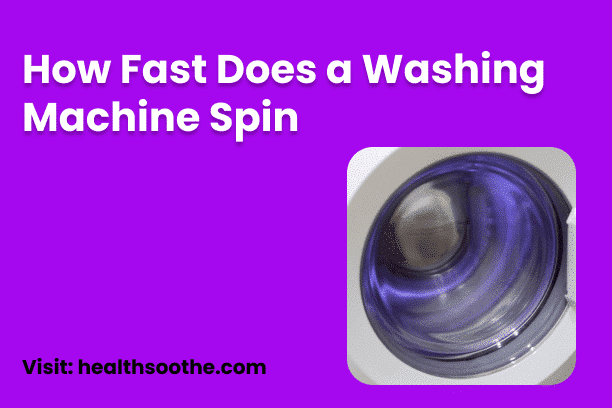If you reside in an apartment without a built-in washer, you might contemplate acquiring a portable washing machine.
However, due to potential drawbacks like noise and leaks, you might wonder, "Is it permissible to use portable washing machines in apartments?"
The majority of landlords, local building authorities, and tenants' associations generally prohibit the use of portable washing machines in apartments.
They cite reasons such as tenant disturbances and the risk of water damage, among others. Consequently, it is imperative to inquire with these entities prior to utilizing a washer in your apartment.
Conversely, some apartment owners opt to supply in-unit washing machines and dryers, while a minority may grant permission for tenants to bring their own washing machines.
It is essential to note that even if you are permitted to use a washing machine in certain apartments, you must adhere to several conditions. For instance, the apartment must lack washer and dryer hookups, and you should have access to water and proper drainage, among other requirements, which I will elaborate on later. Before delving into those details, let's first explore how portable washing machines operate.
How Do Portable Washing Machines Work?
In general, portable washing machines are designed to connect directly to the sink. To install them, you'll need to unscrew the faucet on the sink and attach the hose that delivers water to the washer.
Once this connection is made, you can add your laundry and detergent to the machine, plug it into a power source, turn on the water supply, and start the washing cycle. It's a straightforward process!
As a result, your portable washing machine functions just like a standard washer, allowing you to select various cycles such as wash and spin.
Some portable washers, however, come with a dual-tub design, where one tub is designated for the spin cycle, and the other is used for rinsing and washing. This dual-tub setup enables clothes to dry more quickly during the spin cycle.
Reasons Why Portable Washing Machines Not Allowed in Apartments
1. Portable Washing Machines Are Often Noisy (Source of Disturbance)
Many portable washing machines tend to generate noise and can vibrate quite vigorously, which can be disruptive to fellow tenants. This is a primary reason why landlords often prohibit their use in apartments.
Therefore, if you wish to use a portable washing machine in your apartment, you may need to persuade your landlord that your particular machine operates with minimal noise and vibration, making it a suitable and unobtrusive choice for the apartment environment.
2. Portable Washing Machines Can Be a Source of Water Damage
Portable washing machines, much like conventional models, are susceptible to overflows and occasional leaks, often stemming from loose or damaged piping.
When these incidents occur, they can lead to water damage on the apartment floor. To prevent such potential issues, many landlords choose to prohibit the use of portable washing machines in their apartments.
3. Portable Washers Increase the Apartment’s Utility and Water Costs
When a landlord covers the entire apartment's water and electricity bills, they may seek ways to reduce these costs. One common approach they take is implementing rules that prohibit the use of high-water and energy-consuming appliances such as washing machines, dishwashers, and dryers. This helps control expenses and maintain cost-effective utility usage within the apartment complex.
4. Portable Washing Machines Can Be a Problem to Shared Small Drainage
In older apartments, it's possible that the drainage pipes are relatively small in size. Because tenants often share these drainage systems, landlords may choose to prohibit the use of portable washing machines to prevent potential drainage issues and backups.
Additionally, in some areas, using such appliances might also violate municipal codes related to plumbing and water usage. It's essential to consider these factors and consult with your landlord or local authorities before using a portable washing machine in such circumstances.
5. Portable Washers Could Cause Hot/Cold Water Loss
Frequent and extensive use of a washing machine in an apartment can put a strain on the building's water heater. This increased demand for the water heater may lead to temperature fluctuations and discomfort for other tenants sharing the hot water supply. To prevent potential complaints from tenants and ensure consistent hot water availability, landlords often choose to prohibit the use of portable washing machines in their apartment buildings.
Pros and Cons of portable washing machine
Pros:
- Space-Saving
- No Special Hookups Required
- Cost-Effective
- Portability
- Energy and Water Efficiency
- Convenience
Cons
- Limited Capacity
- Noise and Vibration
- Durability
- Manual Operation
- Longer Wash Cycles
Differences Between portable washing machine and Ge washer
Portable Washing Machine
Some portable models can be noisy and vibrate during operation, which can be a concern in shared living spaces.
GE Washer
Modern GE washers often incorporate noise-reduction technologies to minimize noise and vibrations during the washing process.
Alternative to portable washing machine
Laundromats
If you have easy access to a laundromat in your area, you can continue to use their facilities for washing and drying your clothes. Laundromats offer various machine sizes and are a convenient option, especially for those without in-unit washer/dryer hookups.
6. Portable Washing Machines Could Interfere with The Apartments Electrical
The drainage system of a washing machine can occasionally pose challenges to the building's electrical networks. In particular, this concern is more likely to arise in older apartment buildings with outdated electrical infrastructure.
To mitigate potential issues and maintain the integrity of the electrical networks, landlords may opt not to permit washing machines within their premises, including portable ones.
This decision is made in the interest of ensuring the safety and functionality of the building's electrical systems.
What to Do Before Using Portable Washing Machines in Apartments
It's important to note that while many landlords do not allow portable washing machines in apartments, this policy can vary depending on the specific rental agreement and apartment complex. To ensure compliance with your landlord's rules and local regulations, it's essential to check with the following:
- Landlord or Property Manager: Always start by consulting with your landlord or property manager. They can provide you with the most accurate information regarding the use of portable washing machines in your specific apartment.
- Local Building Authorities: Some municipalities may have regulations or building codes that dictate whether portable washing machines are allowed in apartments. Check with your local building or housing authority to understand any legal restrictions.
- Tenants' Association or Lease Agreement: Review your lease agreement and any guidelines set forth by the tenants' association, if applicable. These documents may contain specific provisions related to appliances like washing machines.
- Neighbours and Tenant Feedback: It can also be helpful to speak with your neighbours or fellow tenants who may have experience with portable washing machines in the building. They can offer insights into any issues or considerations you should be aware of.
Why Portable Washing Machines Are Good for Apartments
Portable washing machines can offer several advantages for apartments, making them a suitable choice for certain situations. Here are some reasons why portable washing machines are good for apartments:
- Space-Saving: Apartments often have limited space, and portable washing machines are compact and can easily fit into small laundry areas, closets, or even kitchens. They are an excellent solution for apartments where traditional, full-sized washers and dryers may not be feasible due to space constraints.
- No Need for Special Hookups: Portable washing machines typically connect to a standard faucet and do not require dedicated plumbing or venting systems. This makes them a convenient option for apartments that lack washer and dryer hookups.
- Cost-Efficient: Portable washing machines are generally more affordable than full-sized washers and dryers, making them a budget-friendly choice for tenants who want to do their laundry in their apartment.
- Portability: As the name suggests, these machines are easy to move around. If you relocate to a new apartment, you can take your portable washer with you, avoiding the need to purchase a new appliance.
- Energy and Water Efficiency: Some portable washing machines are designed to be energy-efficient and use less water compared to traditional washers, which can be beneficial for both the environment and your utility bills.
- Convenience: With a portable washing machine, you have the convenience of doing your laundry at home, eliminating the need to visit a laundromat or shared laundry facilities in the building. This can save you time and make laundry chores more convenient.
- Control Over Laundry: Having your own washing machine gives you control over your laundry schedule. You can wash clothes when it's most convenient for you, without waiting for communal laundry facilities to become available.
Conclusion
In conclusion, while portable washing machines can be a convenient and space-saving solution for apartment dwellers, their use within apartment buildings can sometimes raise legal and practical concerns.
Landlords and property management companies may prohibit their use due to potential issues related to noise, water damage, electrical strain, and compliance with local building codes.
It is essential for tenants to check with their landlords, review lease agreements, and consider local regulations to determine whether portable washing machines are allowed in their specific apartments.
While they offer numerous benefits, ensuring compliance with apartment policies and local laws is crucial to maintaining a harmonious living environment and avoiding potential legal issues.


